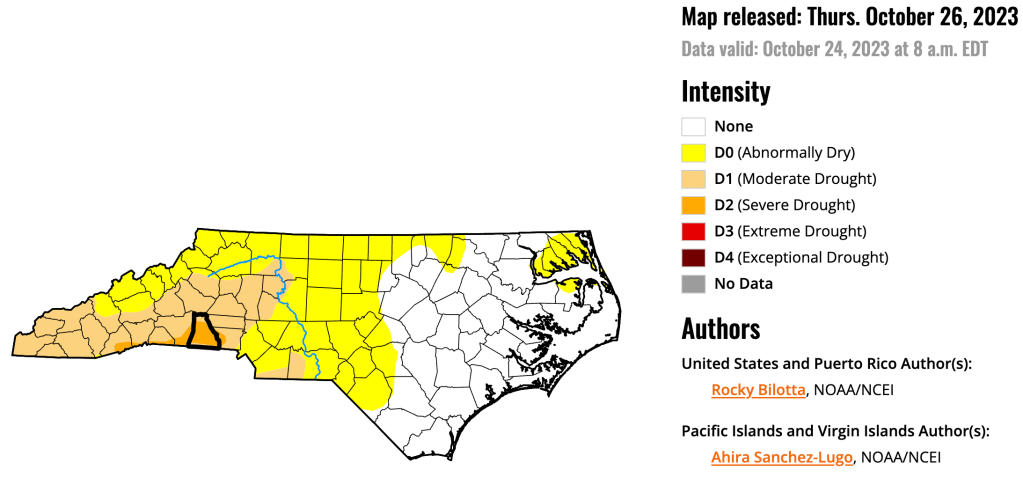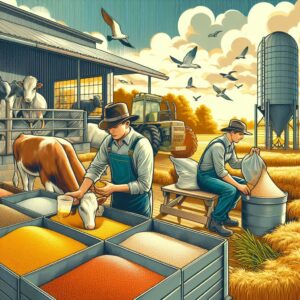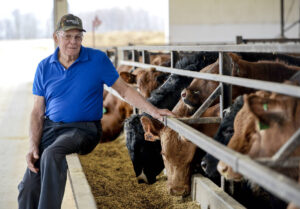
Screen Shot 2023 10 28 at 9.37.30 AM 1024x485.png
Desperate times call for desperate action. I’ve left my car windows down, painted an outbuilding, and even hung up a few garments on the old clothesline–just to tempt the atmosphere into relinquishing a few rain drops. The whole countryside looks drab, like someone siphoned the chlorophyll out of the pastures and hayfields. We haven’t had any substantial rain since early September. But give it a few months, and the pendulum will have probably shifted and we’ll be boarding an ark. It seems like it’s always one extreme or the other.
Somehow, in their infinite wisdom, the folks who monitor and declare drought stages have finally found it within themselves to bestow us with an official “severe drought” designation. “Abnormally Dry,” they said for months. There will be no fall flow this year, not that that’s abnormal. Occasionally, when I was a beginning beekeeper, I heard old timers mention fall flows and hives smelly and filled with goldenrod and aster honey. We still get the smelly socks aroma from traces of aster nectar, but a hive bursting with fall honey is about as rare as a raindrop these days. In the thirteen years I’ve been keeping bees, I don’t think I’ve ever had a fall flow that fills supers.

Ten years ago, we bought the old farmhouse. My wife’s grandfather, who was born in the house, is eighty-five and likes to tell stories about the olden days when the family had hog killings in January, bled carcasses on the branch of a mammoth barnyard oak, and hung hams in the smokehouse. Eventually, they quit raising hogs because they were losing too many hams in the winter due to warm spells.
Hams don’t lie, I suppose, and neither do honey supers. The climate is changing. And the landscape is too. Housing developments are spreading faster than kudzu, and as much as I can’t begrudge people a place to live (I guess everyone can’t live in a house built in 1897), I don’t like it much either, just like I don’t like 85 ℉ days at the end of October.
Sometimes I wish I could have seen the countryside in its prime, back when it was dotted with farmsteads, not sprawling developments named after farms. Having tried my fair share of farming schemes, I’m not naive enough to believe it was a better or easier time, but I’d like to think it was a slower time when things didn’t change quite so fast. Or maybe change has stayed the same, and I’m just getting older and time is speeding up. Either way I don’t like it. I wish it would stop.
Source link
2023-10-28 09:43:57
Karl Hoffman is a distinguished agriculturalist with over four decades of experience in sustainable farming practices. He holds a Ph.D. in Agronomy from Cornell University and has made significant contributions as a professor at Iowa State University. Hoffman’s groundbreaking research on integrated pest management and soil health has revolutionized modern agriculture. As a respected farm journalist, his column “Field Notes with Karl Hoffman” and his blog “The Modern Farmer” provide insightful, practical advice to a global audience. Hoffman’s work with the USDA and the United Nations FAO has enhanced food security worldwide. His awards include the USDA’s Distinguished Service Award and the World Food Prize, reflecting his profound impact on agriculture and sustainability.


